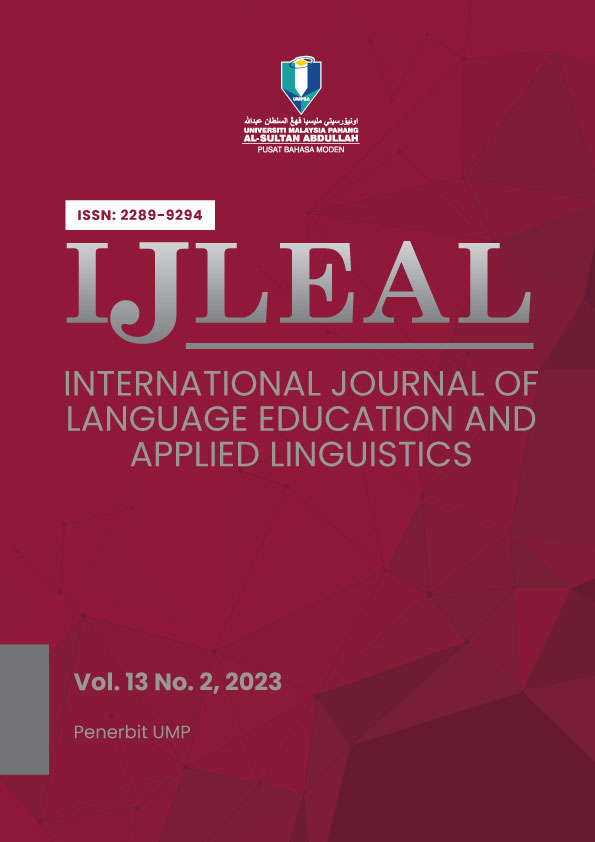Issues and Functions of Code-switching in Studies on Popular Culture: A Systematic Literature Review
DOI:
https://doi.org/10.15282/ijleal.v13i2.9585Keywords:
Code-switching, Discourse variety, Popular culture, Systematic literature reviewAbstract
Code-switching is a linguistic phenomenon often associated with the architecture of discourse varieties. A good number of studies in the bilingual and multilingual contexts have zoomed in on the use of code-switching primarily analysing its roles and functions in varied discourse settings. This paper highlights and reviews code-switching in studies of which the scope is its usage in popular culture, with the aims to explore the most frequently discussed issues in the realm of code-switching used in popular culture and the functions of code-switching that are central to discourse depicted in various genres of popular culture. Grounded on the “Preferred Reporting Items for Systematic Reviews and Meta-Analyses” (PRISMA), a systematic literature review was extensively conducted in researching code-switching studies in five major databases - ScienceDirect; SCOPUS; SpringerLink; Taylor & Francis; and Web of Science - with search strings that are the combinations of code-switching and 11 keywords related to popular culture. Findings revealed that identity, constructions of meaning, persuasiveness in advertisements and language styles are the most commonly cited issues discussed in the literature. While referential, directive, expressive, metalinguistic, and poetic functions serve, among others as instruments for speech accommodation, expressions of emotions and language as well as identity demarcation. Deductions constructed from this systematic review illustrate the complex and versatile qualities of code-switching depicted in studies conducted within the sphere of popular culture, thus rendering some insights into the area of interpersonal and social discourses.
Downloads
Published
Issue
Section
License
Copyright (c) 2023 Universiti Malaysia Pahang Publishing

This work is licensed under a Creative Commons Attribution-NonCommercial 4.0 International License.




